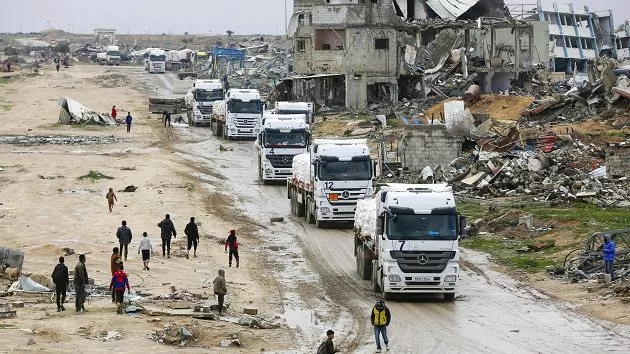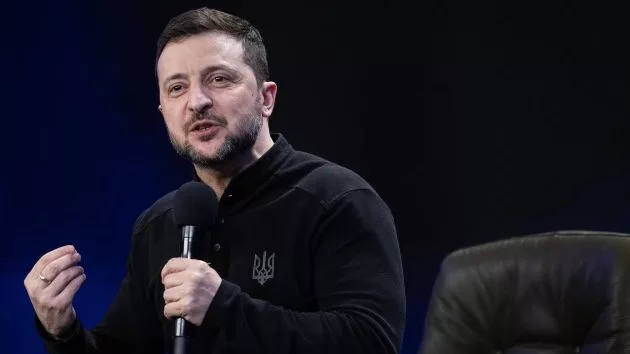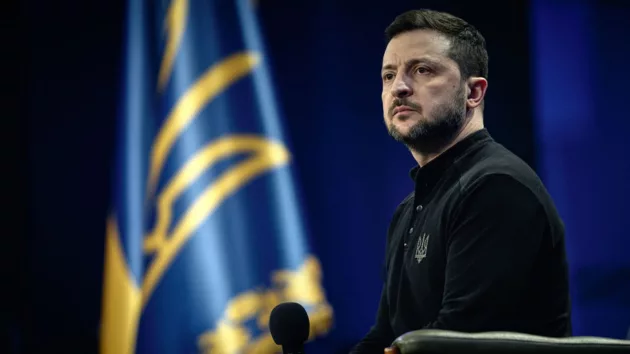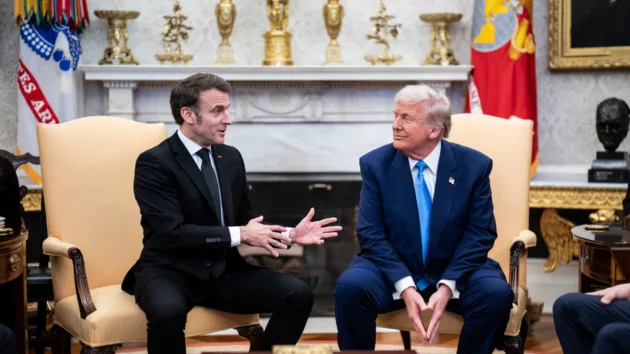(LONDON) — When she left her home in Gaza City 16 months ago, Tala Herzallah didn’t think she was seeing it for the last time.
Now, walking in the rubble of what used to be her house, the 22-year-old Palestinian can barely recognize the place where she spent most of her life.
“It pains me to say it, but I only can recognize a wall from my home. Just one wall,” she told ABC News. “Otherwise, everything just disappeared as if it wasn’t there.”
Herzallah, an English student at the Islamic University of Gaza, packed her school bag and a few of her most treasured belongings as she evacuated after incessant bombing hit her neighborhood, Tel Al-Hawa.
The northern part of Gaza was the first target of Israel’s retaliatory strikes following the Hamas-led October 2023 terror attack and remained the scene of some of the fiercest fighting. Multiple ground operations and relentless airstrikes damaged or destroyed most of the buildings.
Its residents were forced to evacuate. The lack of aid, medical care and basic resources made life impossible for those who stayed behind.
Still, as soon as a ceasefire between Israel and Hamas was announced in January, hundreds of thousands made their way back north.
Those that have returned have been shocked by the devastation: their houses and belongings were mostly reduced to rubble and the signs of a humanitarian crisis are apparent on every corner.
But when Herzallah looked behind from her car, as bombs fell across the road that was taking her and her parents to a safer place in the south, she still hoped to return to north Gaza as she always knew it: colorful, vibrant and full of life.
That hope never faded, but with every month of war that went by, Herzallah said she knew there would be nothing waiting for her in Tel Al-Hawa.
“I know that it was destroyed. But until the last moment, I had this tiny hope that no, it won’t be destroyed. The pictures they showed me, I didn’t trust them,” she told ABC News. “I told myself, when I will reach it, it will be good.”
But it was not. As for millions of Palestinians in Gaza, Israel’s war changed everything for Herzallah.
Her house was reduced to rubble. Her education was paused as her university was destroyed and her beloved professor, Dr. Refaat Alareer, killed in an Israeli airstrike.
She was separated from her family, with her brothers in different parts of Gaza and her nephews abroad. She lost all her privacy, having to share a bathroom with more than 20 people for months.
“I don’t want to remember these days. I don’t want to remember how much I suffered because each time I remember these details, I feel that we’re not human beings,” she said. “No human being can tolerate and bear this much of pain and suffering.”
More than 48,000 Palestinians have been killed in the conflict, the Hamas-run Health Ministry reported, and 1.9 million people have been displaced, according to the United Nations.
Unable to process her present, Herzallah said she sometimes struggles to envision her future. Especially when the future she thought she would have had, if the war had not happened, gets in the way of planning anything else.
Entering her school’s campus for the first time since the war began, Herzallah found it changed to a shocking degree.
The Islamic University of Gaza, where she studied English Literature and Translation for the past three years, was hit by an Israeli airstrike on Oct. 10, 2023, as seen in a video shared by the Israeli military. They claimed Hamas used it as a base.
“It was always colorful. Colored with smiles, laughs,” Herzallah said, surrounded by burnt seats and a damaged stage. “I’ve never imagined to enter this place and see it as black as darkness. Pain is everywhere.”
Holding a graduation hat covered in dust, Herzallah said she felt all her losses.
“The first time I came to university, I dreamed of graduation day, of taking photos here with my family, siblings and professors,” she said. “Now I am graduating with nothing.”
Still, Herzallah said her dreams are “stuck between and among this rubble,” in her education. She received a scholarship to pursue her master’s degree in the U.S., which she sees as a second chance to make up for lost time and opportunities.
But she needs to leave Gaza first. Ceasefire talks are ongoing, but a permanent end to the war has yet to be agreed and Gaza’s borders remain closed.
Surrounded by unpredictability and hardship, one certainty remains for Herzallah: that if help is given, Palestinians can rebuild.
“We are strong enough to build it again. But the point is that we need a lot of things to help us. We need a lot of machines and other stuff,” she said.
To President Donald Trump’s proposal that the U.S. take over Gaza, Herzallah has a clear answer: provide the tools and then leave Gaza to Palestinians. She added his comments felt like a slap on her face after everything her people experienced.
“The relationship between Palestinians and their land is like the relationship between any mother and her sons,” Herzallah said. “Even if they leave their mother for a period of time, they will return at last to her hug and her embrace.”
Copyright © 2025, ABC Audio. All rights reserved.






